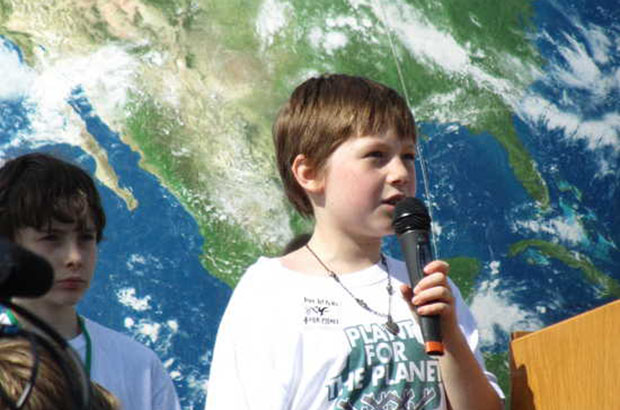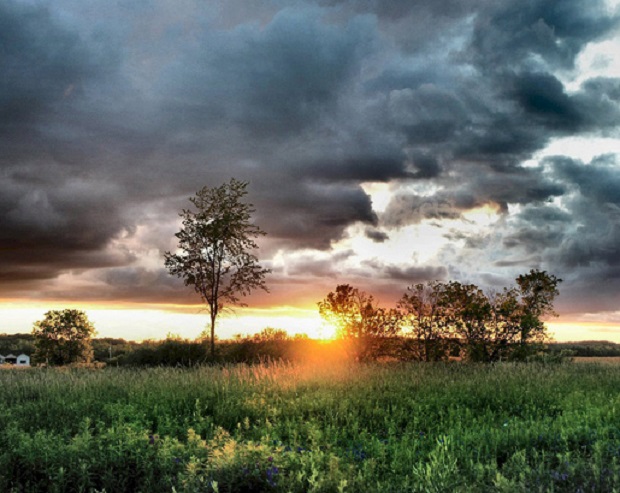Biocarbon Solutions Gaining Momentum
In the Northwest Biocarbon Initiative’s second quarterly digest for 2014, we bring you the latest natural carbon storage news, research, and events.


By: Jenna Garmon on
In the Northwest Biocarbon Initiative’s second quarterly digest for 2014, we bring you the latest natural carbon storage news, research, and events.

By: Seth Zuckerman on
The surprising role of deep-sea fishes in sequestering carbon, Tesla opens up its patents, Volkswagen brings a 260-mpg car to market, and much more.

By: Jimmy Mahady on
Northwest forests are the focus of groundbreaking research into new sustainable biofuels and envigorated rural economies.

By: Jenna Garmon on
Our forests and coastal wetlands store more carbon than we thought. We bring you all of that good news and more in this first Northwest Biocarbon Initiative Digest of 2014.

By: Keeley O'Connell on
The Puget Sound estuary has the potential to store 8.9 million tons of CO2, the equivalent of 1.76 million cars. That’s almost as many cars as are registered in Snohomish and King Counties – the most densely populated part of Washington State.

By: Jenna Garmon on
With CO2 levels surpassing safe limits, carbon storage may be the most important life-supporting function Northwest forests provide the planet.

By: Kimberly Larson on
Who knew that oil and chocolate had anything in common beyond its color? A few thoughts for Valentine's Day.

By: Dominick DellaSala on
Since forests absorb and store vast amounts of carbon, protecting forests, especially old growth forests like those in the Pacific Northwest, should be a key component of any plan to mitigate the effects of climate change.

By: Patrick Mazza on
The health of forests and their owners are directly connected, an insight that has generated an innovative Oregon program to increase forest carbon.

By: Patrick Mazza on
Good-paying jobs that produce multiple products in rural communities where good jobs have been scarce – This is the restoration economy. In Oregon the restoration economy created 6,483 jobs, generated $977.5 million in economic activity from 2001–2010, a new report from Ecotrust says.
Join our email list to learn about what we do and how to get involved.
In the Northwest Biocarbon Initiative’s second quarterly digest for 2014, we bring you the latest natural carbon storage news, research, and events.
The surprising role of deep-sea fishes in sequestering carbon, Tesla opens up its patents, Volkswagen brings a 260-mpg car to market, and much more.
Northwest forests are the focus of groundbreaking research into new sustainable biofuels and envigorated rural economies.
Our forests and coastal wetlands store more carbon than we thought. We bring you all of that good news and more in this first Northwest Biocarbon Initiative Digest of 2014.
The Puget Sound estuary has the potential to store 8.9 million tons of CO2, the equivalent of 1.76 million cars. That’s almost as many cars as are registered in Snohomish and King Counties – the most densely populated part of Washington State.
With CO2 levels surpassing safe limits, carbon storage may be the most important life-supporting function Northwest forests provide the planet.
Who knew that oil and chocolate had anything in common beyond its color? A few thoughts for Valentine's Day.
A new methodology enables emission reductions from biochar in the U.S., developed jointly by The Climate Trust in partnership with the International Biochar Initiative, Prasino Group, and Carbon Consulting.
If the Earth’s vegetation were not absorbing tremendous amounts of carbon dioxide from the atmosphere, the climate would be much hotter and have already crossed highly dangerous thresholds.
Since forests absorb and store vast amounts of carbon, protecting forests, especially old growth forests like those in the Pacific Northwest, should be a key component of any plan to mitigate the effects of climate change.